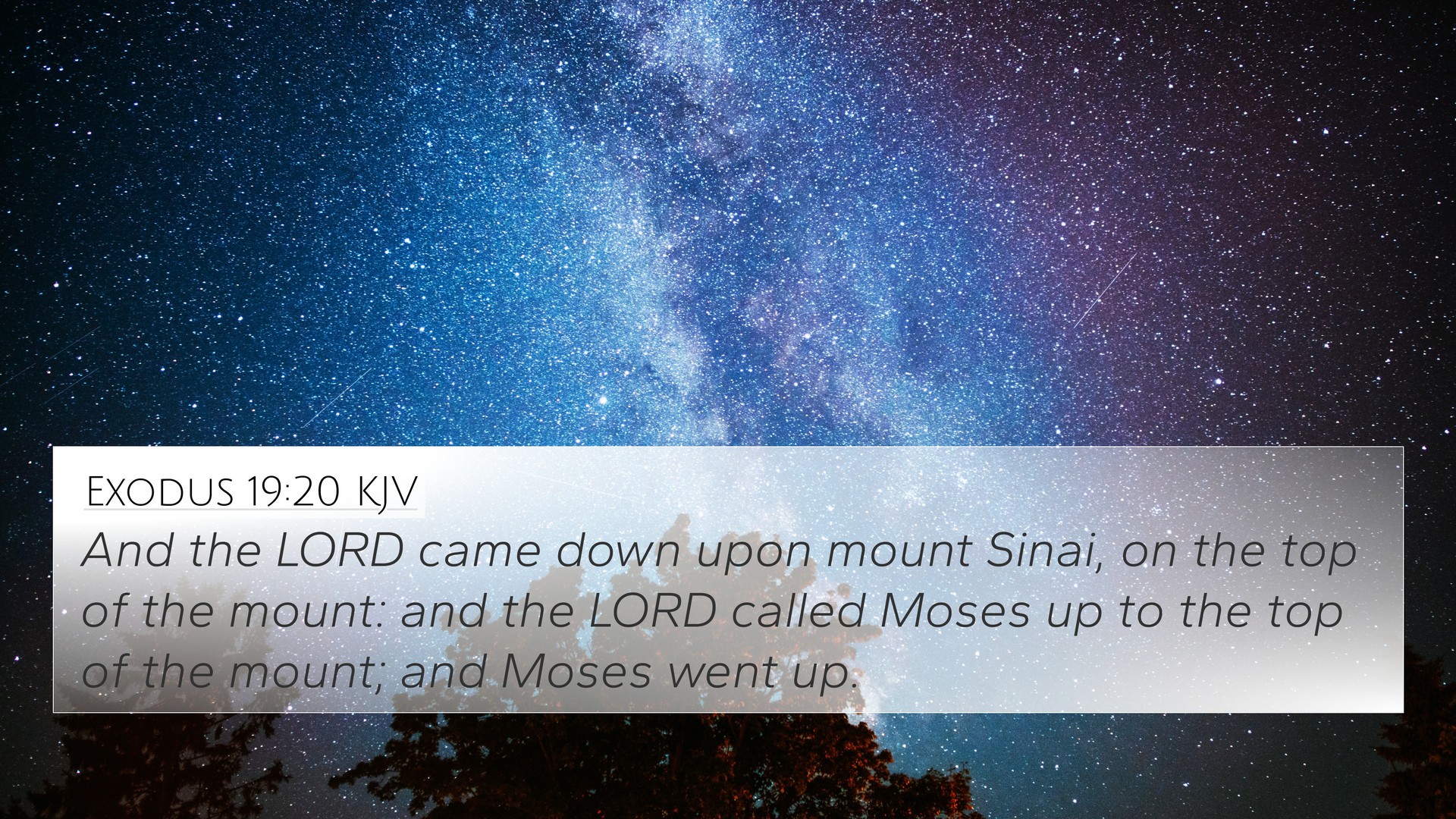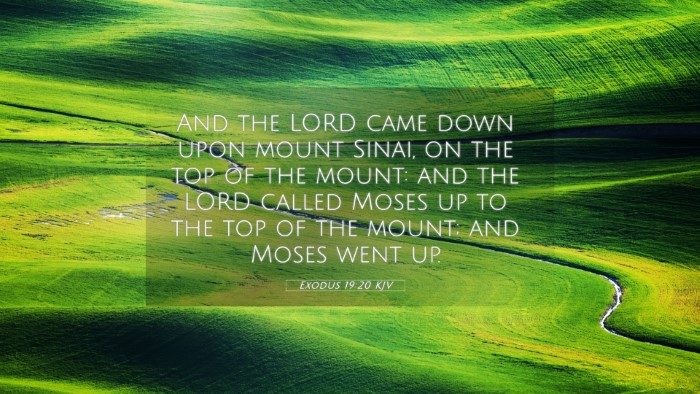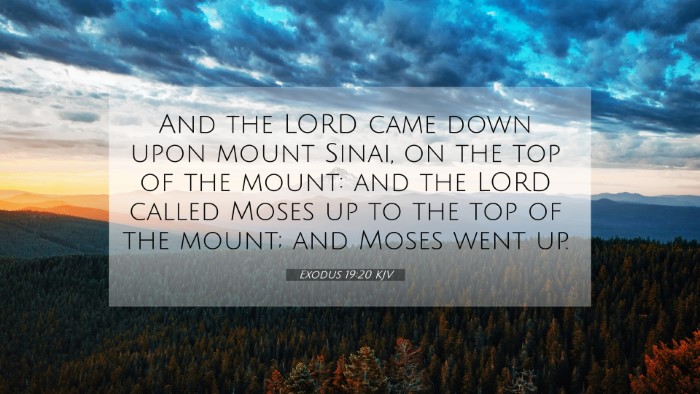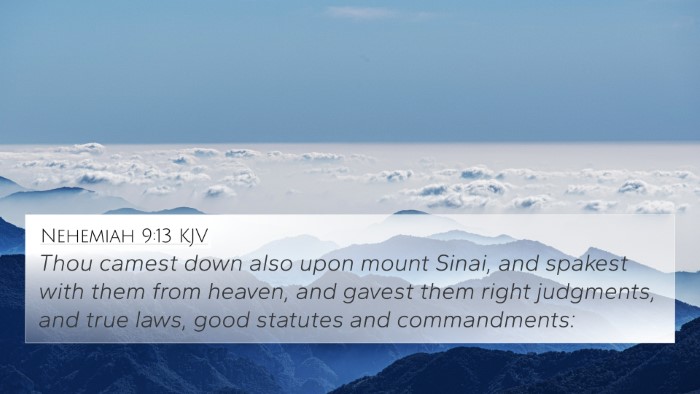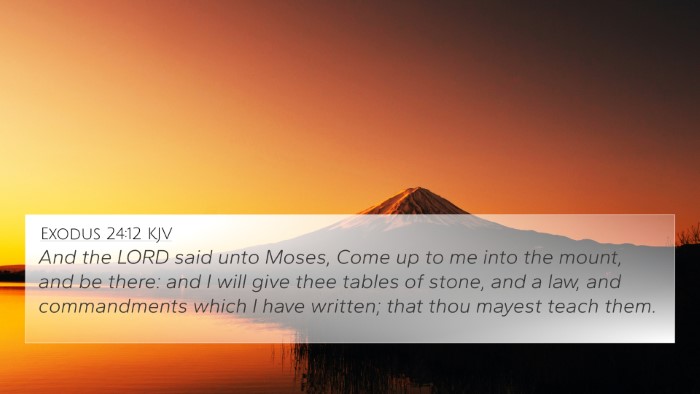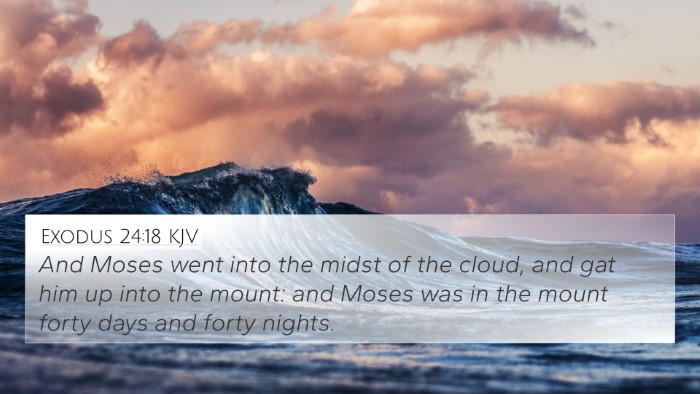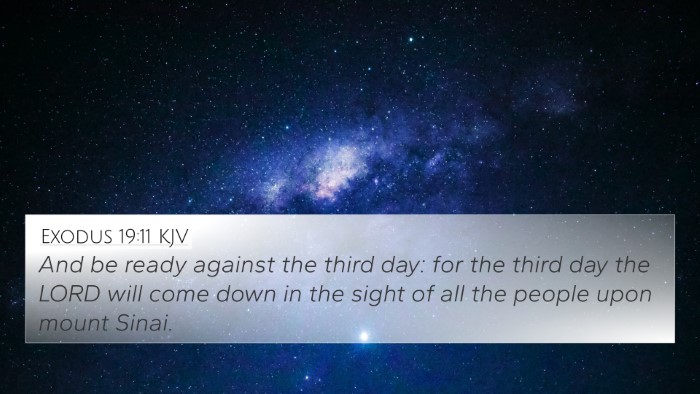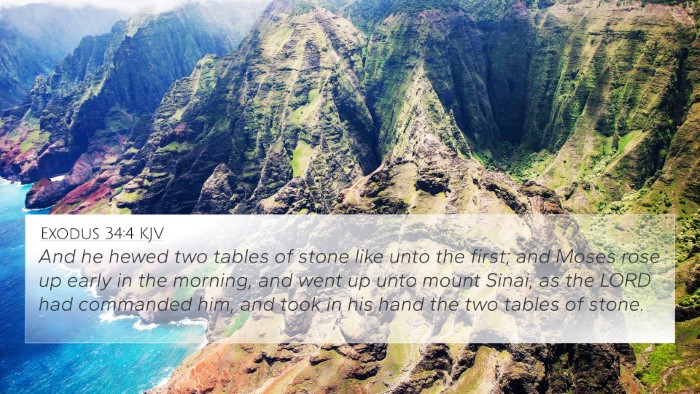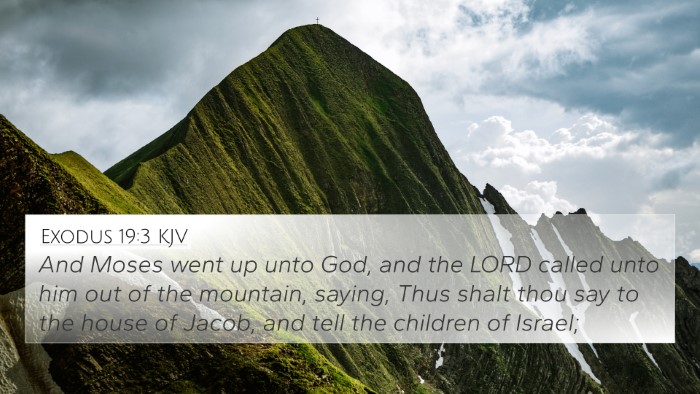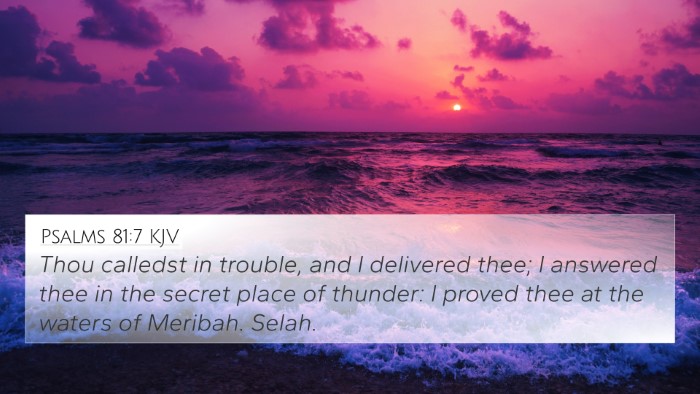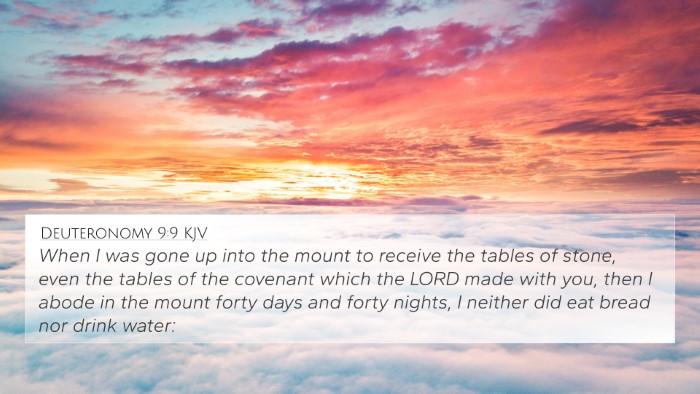Understanding Exodus 19:20
Exodus 19:20 states: "And the Lord came down upon mount Sinai, on the top of the mount: and the Lord called Moses up to the top of the mount; and Moses went up."
This verse marks a pivotal moment in the Exodus narrative, highlighting God's presence and His direct communication with Moses. Below, we explore the interconnected themes and meanings derived from various public domain commentaries, organized for clarity and comprehension.
Commentary Insights
Divine Revelation
Matthew Henry notes that this descent of God signifies His intention to reveal Himself to His people. The mountain symbolizes the separation between the divine and human realms, emphasizing God's holiness. Moses, being called up, represents a chosen leader who bridges this gap.
Theophany
Albert Barnes describes the event as a theophany, a manifestation of God’s presence to mankind. This extraordinary encounter serves to affirm Moses' role and the seriousness of the covenant about to be established. It instills awe and fear among the Israelites, displaying God's sovereignty and majesty.
Obedience and Authority
Adam Clarke elaborates on Moses' obedience as he ascends the mountain. This act signifies the acceptance of divine authority and the importance of leadership in obeying God's commands. The ascent is symbolic of spiritual elevation and the need for intimate communion with God to understand His will.
Cross-References to Exodus 19:20
The following cross-references highlight connections across the Bible relating to themes of divine revelation and authority:
- Hebrews 12:18-21 - The description of Mount Sinai emphasizes the fearsome nature of God's presence and the need for reverence.
- Exodus 3:5 - God's command to Moses at the burning bush reinforces the holy ground theme, indicating sacred encounters demand holiness.
- Psalm 68:16 - Reflects on God's majesty and the significance of His presence among His people.
- Deuteronomy 4:36 - God speaking from heaven illustrates the establishment of His covenant and the expectation of obedience.
- Matthew 17:1-2 - The transformation of Jesus on the mountain draws parallels to Moses' experiences at Sinai, symbolizing the continuity of God's revelation.
- Acts 7:30-34 - Stephen recounts Moses’ encounter with God, underscoring the importance of this divine calling.
- 2 Corinthians 3:7 - Referring to the glory of the old covenant, acknowledging the weight of God's law delivered through Moses.
Thematic Connections
When examining Exodus 19:20 alongside these references, several themes emerge:
- Divine Authority: Exodus 19:20 shows God exercising authority, paralleling others that describe His revelations.
- Holiness and Awe: This theme is consistent through the experiences of Moses and underscores the proper response to God’s holiness.
- Covenant Relationship: The passing of the law and covenant obligations form the core of Israel's identity, connecting to their history and future.
- Intercessory Role: Moses acts not only as a leader but as an intercessor, a role that foreshadows Christ’s mediation in the New Testament.
Conclusion
Exodus 19:20 serves as a profound reminder of God’s presence and the seriousness of His communications with His people. This verse invites contemplation on the nature of divine authority, the call to holiness, and the promise of covenant relationship. By exploring cross-references and thematic connections, we gain deeper insights into the richness of scripture and its relevance to our understanding of God’s nature.
Tools for Further Study
To enhance your study of Bible verses and their connections, consider using the following tools:
- Bible Concordance: A comprehensive list of biblical terms and their locations for deeper study.
- Bible Cross-Reference Guide: Resources that provide links between related scriptures.
- Cross-reference Bible Study: A method that encourages exploration of themes and messages across biblical texts.
Final Thoughts
Engaging with Exodus 19:20 through commentaries and cross-referencing enriches our understanding of the Bible. By identifying connections between verses and exploring their thematic significance, we foster a more profound knowledge of God’s word and its implications for our lives.
